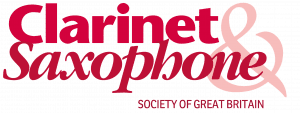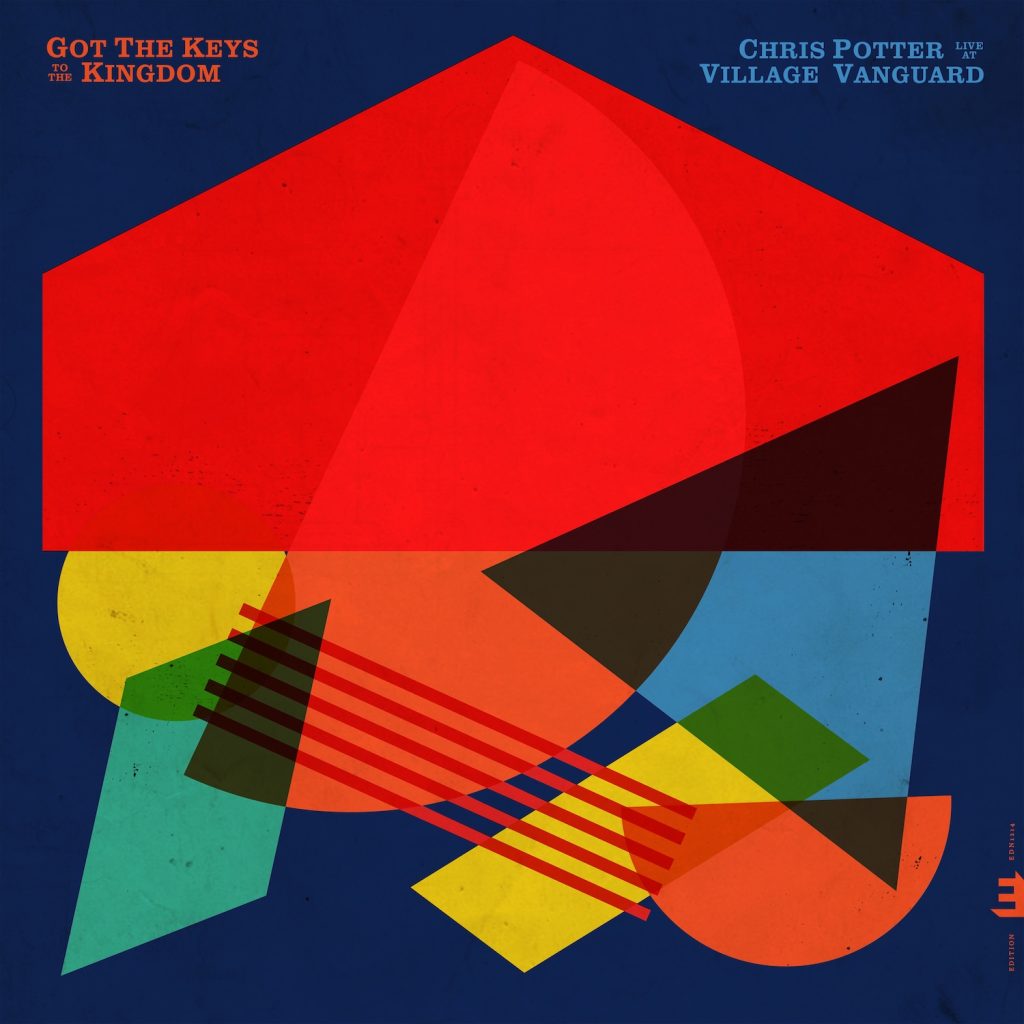The following review is taken from the Spring 2023 issue of Clarinet & Saxophone magazine. For more reviews, news, and features from the single-reed world, join to receive our quarterly magazine and other membership benefits.
GOT THE KEYS TO THE KINGDOM: LIVE AT THE VILLAGE VANGUARD
Chris Potter, saxophone
Edition Records
You will be hooked from the very first notes. This live album opens with Chris Potter playing unaccompanied; an opening statement on tenor sax that makes you sit up and pay attention. You know that you are in for something special. It is not an ostentatious display of technique that immediately grabs you, just the effortlessly articulated musical ideas delivered with the muscular sound and commanding expression of a master player. That big and bold tone, and the use of hard edged and often staccato notes, brings to my mind the great Sonny Rollins, a saxophonist who was one of the many legends who graced the stage of the Village Vanguard where this album was recorded – one of the most famous jazz clubs in the world.
Potter is of course a legendary player in his own right and clearly very much at home in this auspicious venue, in front of an enthusiastic crowd. The superior quality of the recording, with the sax just right in the mix and the band as a whole perfectly balanced, means we get a chance to hear and enjoy this music as if we were there. Perhaps even better, since we get to hear the performance up close, with every detail and nuance of the playing coming through with absolute clarity.
Potter’s intro kicks off You Gotta Move. The whole band soon joins in with a steady medium tempo rock feel, and after the tune is played Potter takes off on his solo proper. As with all his solos on this album, his phrasing and articulation are awe-inspiring, from the rich lower notes to the rasping altissimo, everything is so clear and precise, with a warmth and sense of swing that perfectly brings together intelligent musical logic with passionate soulfulness.
This track also features an outstanding drum solo from Marcus Gilmore. Over a repeated bass riff, he displays a seemingly endless source of counter phrases and criss-crossing pulses, using all parts of the kit to breathtaking effect. And all the while there is great subtlety to the use of tonal colours, even when reaching the solo’s feverish finale.
You Gotta Move was originally a gospel number memorably covered on the Rolling Stones’ classic album Sticky Fingers. Perhaps an unusual choice for a jazz album, but it works perfectly. All the other tracks on the album are in fact the kind of tunes which Potter says “people don’t usually play”, which makes for an interesting and refreshingly eclectic tracklist.
There’s Nozani Na, an Amazonian folk tune which turns out to be an excellent jazz vehicle. After a nice intro by Potter and bass player Scott Colley, there’s one of the many dazzling piano solos by Craig Taborn. He strips back the melody to its fundamental contours, out of which he constructs angular phrases that are stabbed out on the piano. There’s an increasing insistence, working towards his characteristic big and beautifully brash chords, all the time stretching the harmonic possibilities in interesting ways.
Blood Count is a Billy Strayhorn ballad which I had not heard of before. Here it is introduced by an exquisite piano solo that then becomes a duet between Potter and Taborn. When the bass joins, Potter fills the room with his expansive sound, the tune inspiring notes of yearning and passion.
Things move up tempo with Charlie Parker’s rarely played and strangely named Klactoveedsedstene. The band seems to relish the chance to work up a head of steam on this bebop number. The tenor solo springs out of the traps at speed, effortlessly negotiating and shaping a stream of melodic ideas. When the piano drops out, there is some brilliant interplay between sax and drums. With Potter’s fierce soloing with much use of multiphonics, and the almost telepathic interaction with Gilmore, there is an echo of the famous John Coltrane and Elvin Jones duets.
Olha Maria is an Antonio Carlos Jobim tune, which begins with a graceful bass solo from Colley, and sax playing the tune with gorgeous low subtones.
The album finishes with the title track, a joyous traditional spiritual. Once again Potter’s solo is scintillating, intelligent and full of heart. Just listen to those fast triplet runs as they dance around all the registers; the staccato repeated figure; and those blues-inflected phrases.
The enthusiastic audience applause at the end is entirely fitting for this superb music. Here is an album by an outstanding quartet, a band on top form. They clearly find the unconventional set-list an inspiration, re-imagining and re-shaping the material to bring us some sensational jazz. And the man at the helm, Chris Potter, proves yet again why he is the maestro of the tenor sax.
Mike O’Brien


